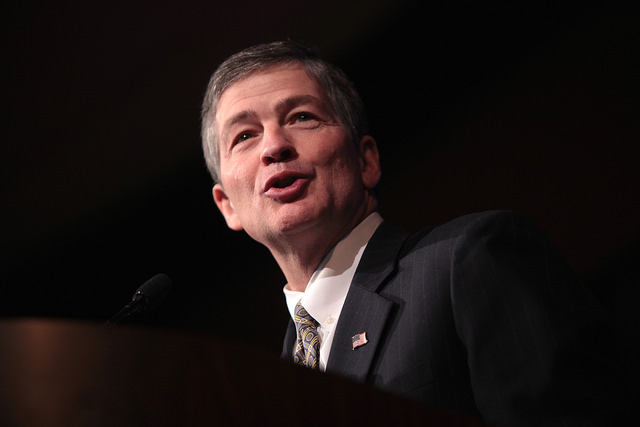
House Financial Services Chairman Jeb Hensarling’s (R-Texas) recently introduced Financial CHOICE Act (FCA) looks to rein in a myriad of onerous and costly regulations enacted under the Dodd-Frank Wall Street Reform and Consumer Protection Act of 2010 (Dodd-Frank Act). In introducing the Act, Chairman Hensarling hopes to give Americans new ability to achieve financial independence and raise their standards of living, while also promoting economic growth for the economy as a whole.
Signed into law by President Obama in 2010, the Dodd-Frank Act was aimed at promoting financial stability in the U.S. However, since enactment Dodd-Frank has only increased financial instability, reduced consumer access while increasing costs, and burdened businesses with billions in compliance expenditures.
Dodd-Frank provisions such as the Durbin Amendment, Volcker Rule, and rules governing fiduciary duties lessen market liquidity and reduce access to financial products and services for millions of Americans. The creation of the Consumer Financial Protection Bureau (CFPB) under Dodd-Frank empowered a new wave of unelected bureaucrats to essentially outlaw financial products unilaterally.
Thankfully, Chairman Hensarling’s Financial CHOICE Act provides much needed relief for financial consumers and U.S. businesses that have suffered under Dodd-Frank. The Financial CHOICE Act contains a number of pro-growth and pro-consumer reforms aimed at lessening Dodd-Frank’s regulatory burden and economic impact.
Some of the most needed reforms under the Financial CHOICE Act are provisions reining in the CFPB. For years the CFPB has been able to unilaterally ban certain financial services and products it deems “abusive” and has been able to collect personally identifiable information on consumers at will. The CFPB is also not subject to the appropriations process, leaving Congress with little oversight over the Bureau’s actions.
The Financial CHOICE Act would repeal the CFPB’s authority to ban bank products and services it deems “abusive” as well as requiring the Bureau to obtain permission before collecting personal information from consumers. The Act would also repeal the CFPB’s authority to prohibit arbitration, and would replace the current director with a five-member commission subject to congressional oversight and appropriations.
With regard to financial consumers, the Financial CHOICE Act would repeal price controls and regulations under Dodd-Frank’s Durbin Amendment that were imposed on debit card transaction fees. The premise of the Durbin Amendment was that the savings from regulated fees would be passed onto consumers, however studies show consumers have actually lost access to free checking and debit card rewards as a result.
The Financial CHOICE Act would also hold financial regulators accountable by requiring that financial regulations pass a cost-benefit analysis before enactment and that “major” regulations be passed by Congress instead of unilaterally by unelected bureaucrats.
Other pro-growth and pro-consumer reforms to Dodd-Frank contained in the Financial CHOICE Act include:
- Repealing the Volcker Rule’s restrictions on proprietary trading;
- Replacing “Orderly Liquidation Authority” which allows the bailout of financial institutions at the expense of taxpayers;
- Repealing the authority of the Financial Stability Oversight Council (FSOC) to designate firms as systematically important institutions (SIFIs);
- Repeal the CFPB’s indirect auto lending guidance; and
- Make all financial regulatory agencies subject to the REINS Act.
These and a number of other reforms contained in the Financial CHOICE Act will be a positive step to reining in costly regulations under Dodd-Frank and ensuring regulators are held accountable.
Overall, Chairman Hensarling’s Financial CHOICE Act will increase financial opportunities and protections for all Americans, end taxpayer funded bailouts, and encourage economic growth through competition, transparency, and innovation.
Photo credit: Gage Skidmore

